Trump's announcement on nuclear deal 'desperate attempt': Iran FM
Iranian Foreign Minister Mohammad Javad Zarif has slammed US President Donald Trump's reluctant announcement on Iran's nuclear sanctions waiver as a "desperate attempt" to undermine a "non-negotiable" international deal.
"Trump's policy and today’s announcement amount to desperate attempts to undermine a solid multilateral agreement, maliciously violating its paragraphs 26, 28 and 29," Zarif tweeted on Friday, in reaction to Trump's stance against the nuclear deal, officially known as the Joint Comprehensive Plan of Action (JCPOA).
The "JCPOA is not renegotiable: rather than repeating tired rhetoric, US must bring itself into full compliance -just like Iran," Zarif added.
Trump's policy & today’s announcement amount to desperate attempts to undermine a solid multilateral agreement, maliciously violating its paras 26, 28 & 29. JCPOA is not renegotiable: rather than repeating tired rhetoric, US must bring itself into full compliance -just like Iran.
— Javad Zarif (@JZarif) January 12, 2018
Earlier in the day, Trump reluctantly agreed not to reimpose nuclear sanctions against Iran for another 120 days, but he cautioned it would be "for the last time."
"Despite my strong inclination, I have not yet withdrawn the United States from the Iran nuclear deal. Instead, I have outlined two possible paths forward: either fix the deal’s disastrous flaws, or the United States will withdraw," Trump said in a statement.
The US president expressed readiness to work with the Congress on legislation which he said must incorporate four elements.
According to the statement, the legislation must oblige Iran to allow inspection of all the sites requested by international inspectors, ensure that Iran "never comes close" to possessing a nuclear weapon, have no expiration date and stipulate that long-range missile and nuclear programs are "inseparable" to subject Iran’s development and testing of missiles to "severe sanctions."
Trump noted that, apart from the planned legislation, his administration is engaged with the European signatories to the nuclear deal to "secure a new supplemental agreement" that can never expire and would slap new multilateral sanctions against Iran if Tehran "develops or tests long-range missiles, thwarts inspections, or makes progress toward a nuclear weapon."
The US president called on all of the country's allies to counter the Islamic Republic's "other malign activities," cut off funding to Iran's Islamic Revolution Guard Corps (IRGC), designate Lebanon's Hezbollah resistance movement as a "terrorist organization."
Germany urges full JCPOA implementation
Germany was the first European country to react to Trump's statement. In response to an email from Reuters, a German Foreign Ministry spokeswoman said that Berlin will consult with its European partners, Britain and France, on how to proceed in implementing the JCPOA.
"The federal government will continue to campaign for the full implementation of the nuclear agreement," she said.
Trump's statement came a day after the European Union’s foreign policy chief, Federica Mogherini, together with foreign ministers of France, the UK and Germany delivered a strong defense of the deal in separate statements, which were issued following a meeting with Zarif in Brussels.

While Trump approved a sanctions waiver, the US Treasury Department announced that it has imposed sanctions on 14 Iranian individuals and companies, including Iranian Judiciary Chief Ayatollah Sadeq Amoli Larijani.
The Republican president had privately expressed reluctance to heed the advice of top advisers -- Secretary of State Rex Tillerson, Defense Secretary James Mattis and National Security Adviser H.R. McMaster -- recommending he not reimpose the suspended sanctions.
A decision to reimpose sanctions would have effectively ended the 2015 Iran nuclear agreement.
The agreement was reached between Iran and six world powers -- the US, the UK, France, China, Russia and Germany.
The deal puts limitations on parts of Iran’s nuclear program in exchange for removing all nuclear-related sanctions.
Trump had come under heavy pressure from European allies to issue the sanctions waiver.
FM Araghchi departs Muscat for Doha following nuclear talks with US
Israeli keeps killing more Palestinian civilians in Gaza amid relentless ceasefire violations
Aliyev: Azerbaijani territory will not be used for threats against Iran
Turkey arrests two on charges of spying for Israeli regime
Iran FM declares ‘good start’ as US–Iran talks conclude in Muscat
Iran strongly condemns 'terrorist' mosque blast in Islamabad
Iran enters talks backed by national power, popular support: MP
France, UK involved in assassination of Muammar Gaddafi's son: Reports




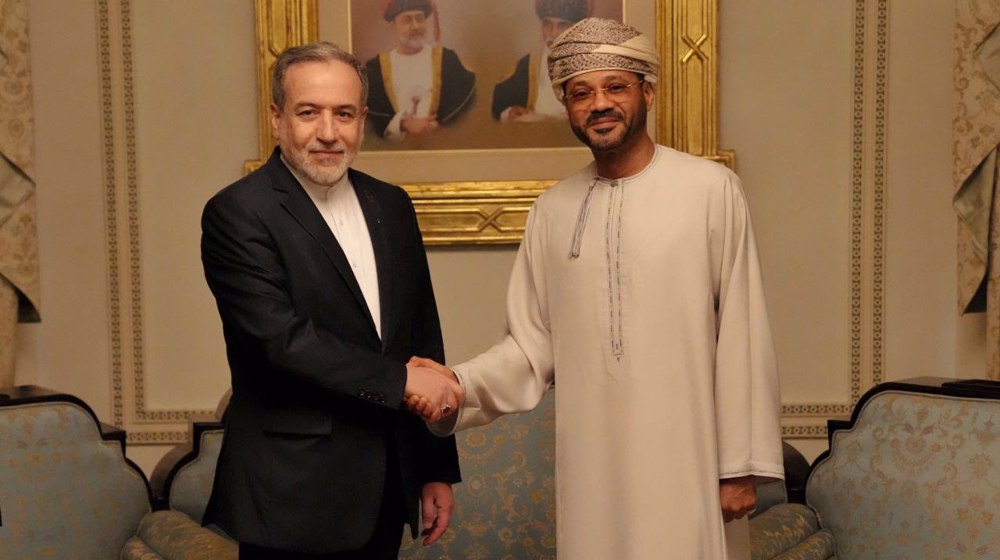
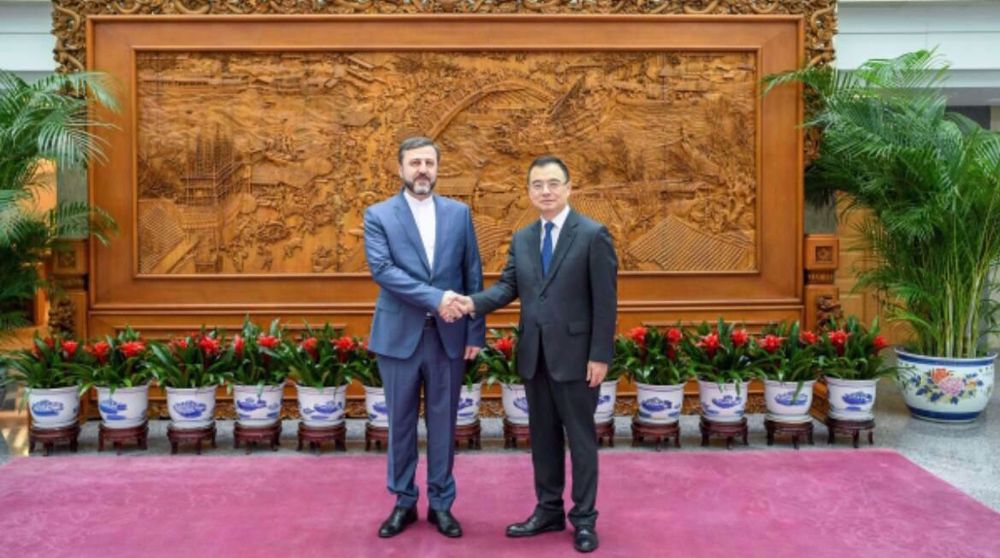
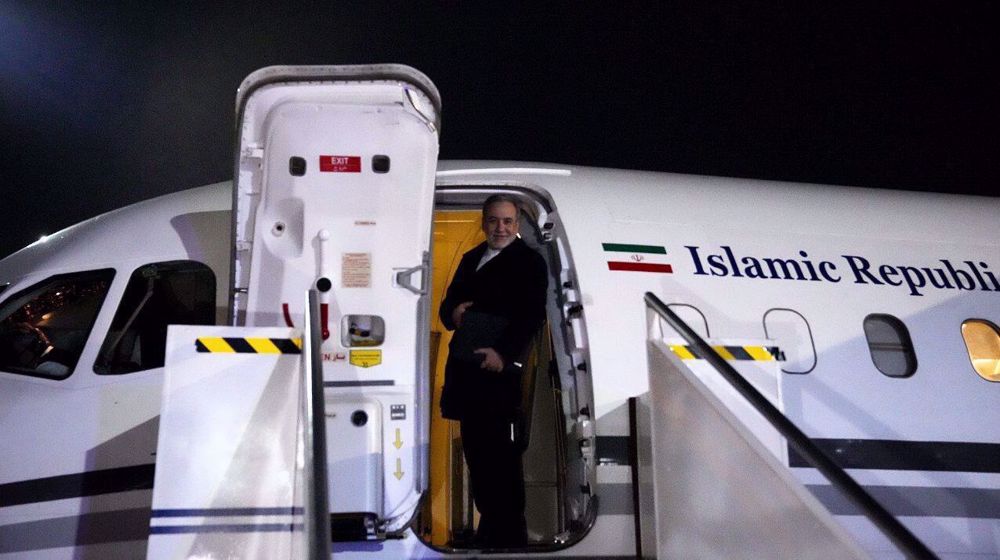



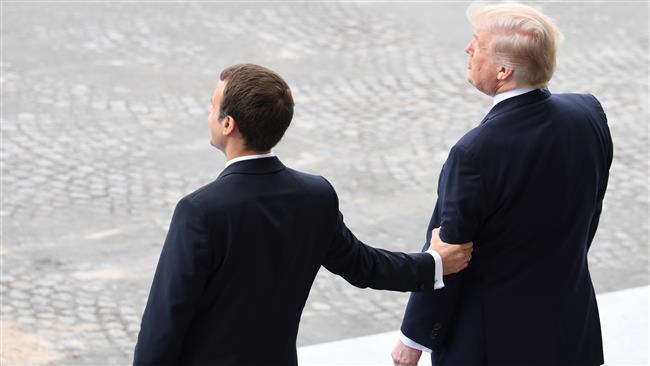

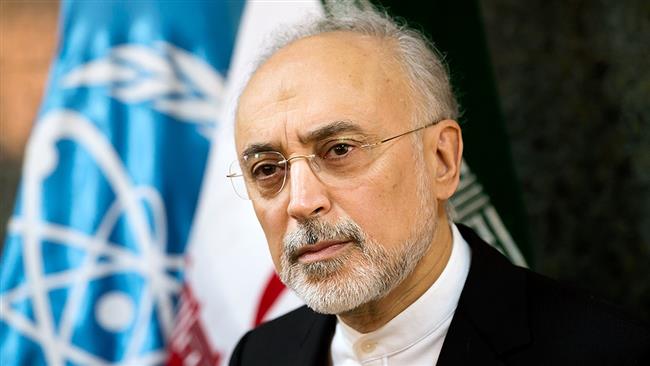

 This makes it easy to access the Press TV website
This makes it easy to access the Press TV website